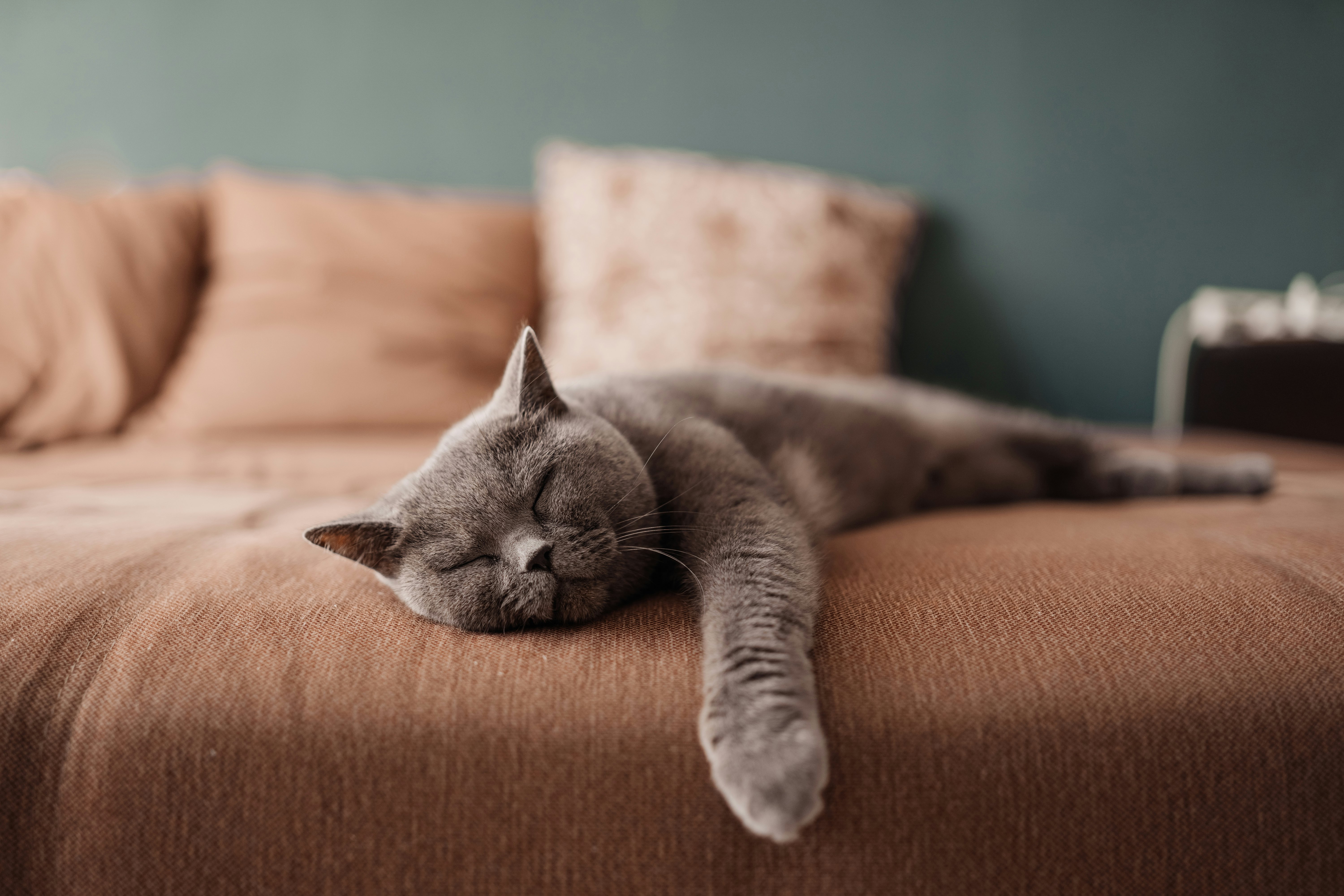
House cats have a pretty great life, all things considered. They needn’t worry about hunting down their next meal, they get on-demand attention, and they sleep — a lot. Perhaps too much? If you’re worried about your feline friend sleeping the day away, don’t fret. It’s normal, and a good reminder we should all probably be getting better sleep.
While their humans are hard at work, cats will often snooze away much of the day, in a favorite sun-baked spot or even on their owners’ laps.
But do cats really need as much sleep as we think they do? And is too much sleep ever a bad thing for cats?
Inverse speaks with four pet experts to demystify the puzzling complexity of cat’s sleeping behaviors, including how to keep them from waking you up at night. You might even learn a thing or two from your cat’s napping prowess.
“Perhaps cats are trying to tell us that people need more sleep,” Katherine Pankratz, a board-certified veterinary behaviorist, tells Inverse.
How much sleep do cats need every day?
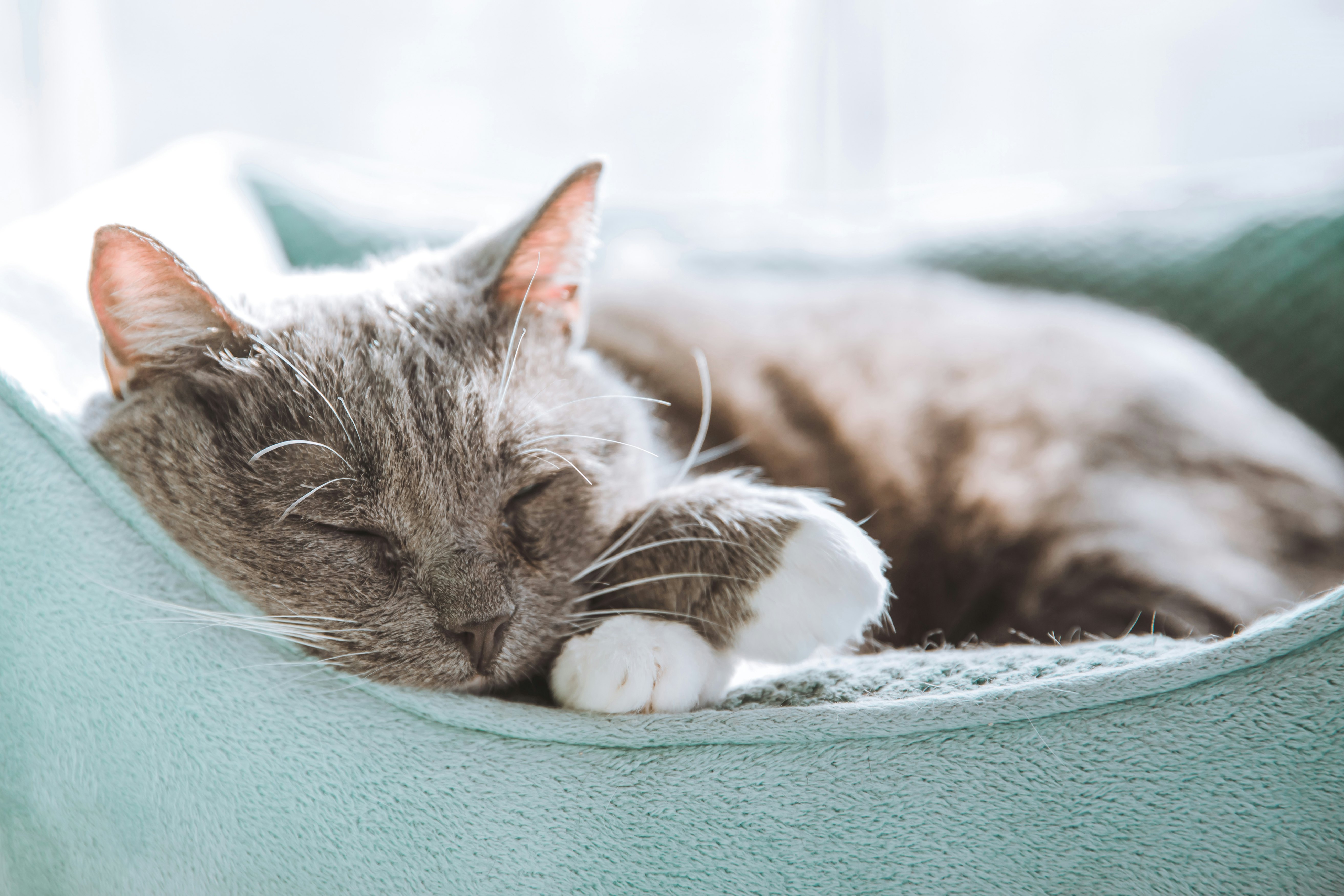
Reports vary, but most experts suggest cats sleep somewhere between 12 to 15 hours a day, though they could rest for as few as 10 hours or as many as 20 hours.
But looks can be deceiving. Pankratz says that your cat might not actually be sleeping during that entire period.
Molly DeVoss, a certified feline training and behavior specialist who runs the nonprofit Cat Behavior Solutions, tells Inverse: “Unlike us, [cats] get that sleep in the form of short ‘cat naps’ throughout the day; they typically don’t sleep in big chunks of time.”
While recommendations say adult humans should get between 7 and 8 hours of sleep, the number of hours a cat may sleep varies significantly depending on its age and environment. A 1981 study found farm cats spent 40 percent of their time asleep — usually at night. During the daytime, they spent 22 percent of the time in a resting state. And a 2007 study found caged cats in a shelter were easily disturbed or alert 70 percent of the time, and asleep for only 11 percent of the time.
Why do cats sleep so much?
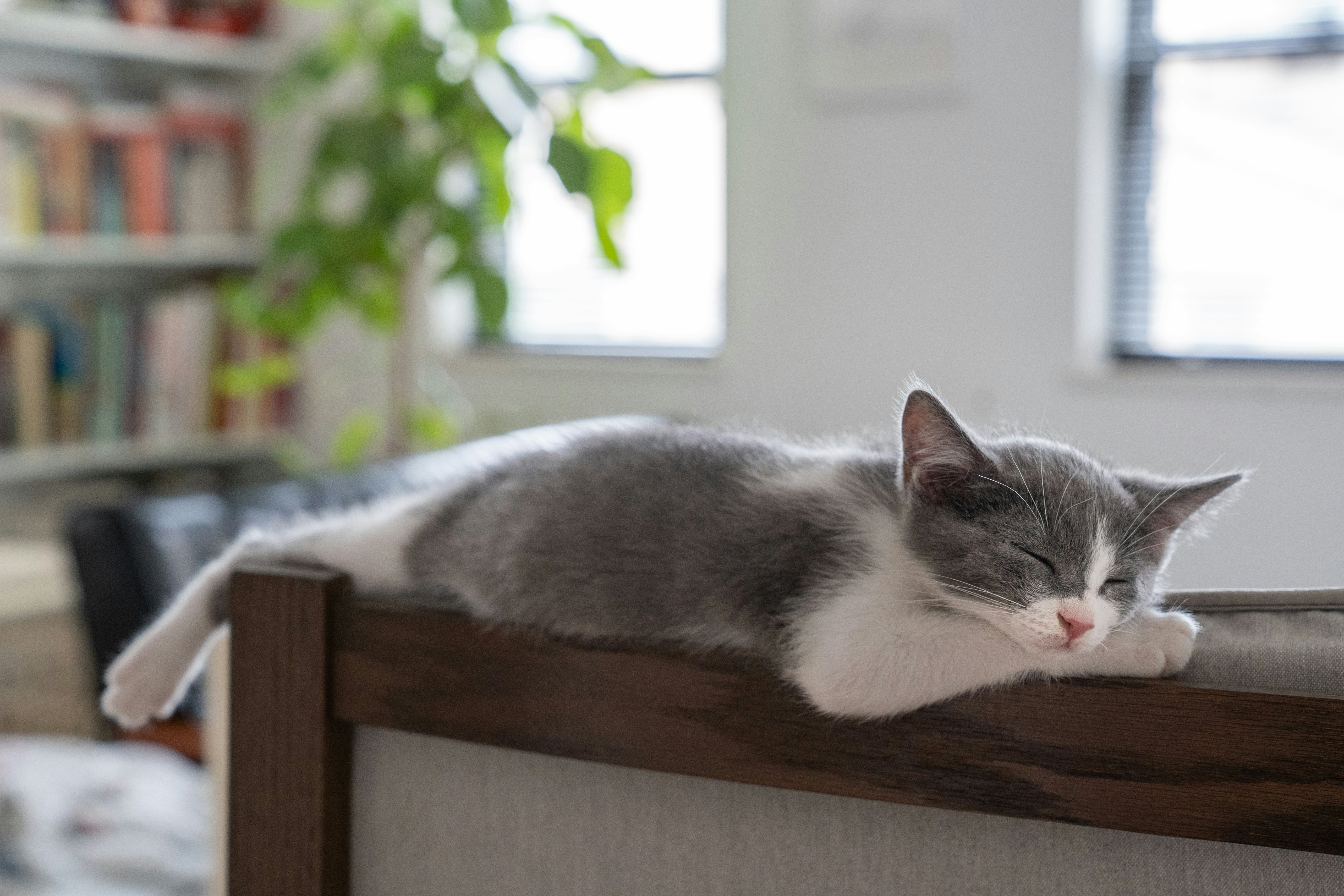
Scientists still don’t fully understand why sleep is important for any creature — cats and humans, included — which makes it hard to nail down why our feline friends seem to require more sleep than humans and even other animals.
“Why an animal sleeps, much less why one species such as a cat may sleep more than other species, remains unknown,” Pankratz says.
Again, cats don’t sleep in one big chunk, which may allow them to rest more over longer periods.
“[Cats] may have several periods of short sleep punctuated with short bursts of activity,” Mikel Delgado, a cat expert at Feline Minds, tells Inverse.
Still, there are clues in the cat’s evolutionary biology that can help us understand their sleeping habits. Cats require short bursts of activity while they hunt, which is usually followed by a meal and a nap.
“They do sleep a lot and that is in part due to their natural lifestyle, which is hardwired in them — to be a stalk-and-rush hunter,” Delgado adds.
DeVoss agrees.
“Cats need a lot of sleep so they can conserve energy for hunting activities such as stalking, chasing, pouncing, climbing, and running,” she says.
But cats can also sleep for a reason that’s entirely relatable to humans: for boredom or mental health reasons. If your cat is suddenly sleeping longer than normal, check in with your veterinarian.
“Cats may sleep all day if they are bored, or depressed,” Delgado says.
Senior cats also typically sleep more than younger cats.
But it’s also important to question whether cats are really sleeping as much as humans think. Your cat may simply be resting on a hot day or grooming. Outdoor cats may also rest more on rainy days.
“Cats may appear to sleep a lot because some of their other activities, like grooming, are very low-key as well,” Liz Stelow, a veterinary behaviorist at the University of California, Davis, tells Inverse.
Are cats nocturnal?
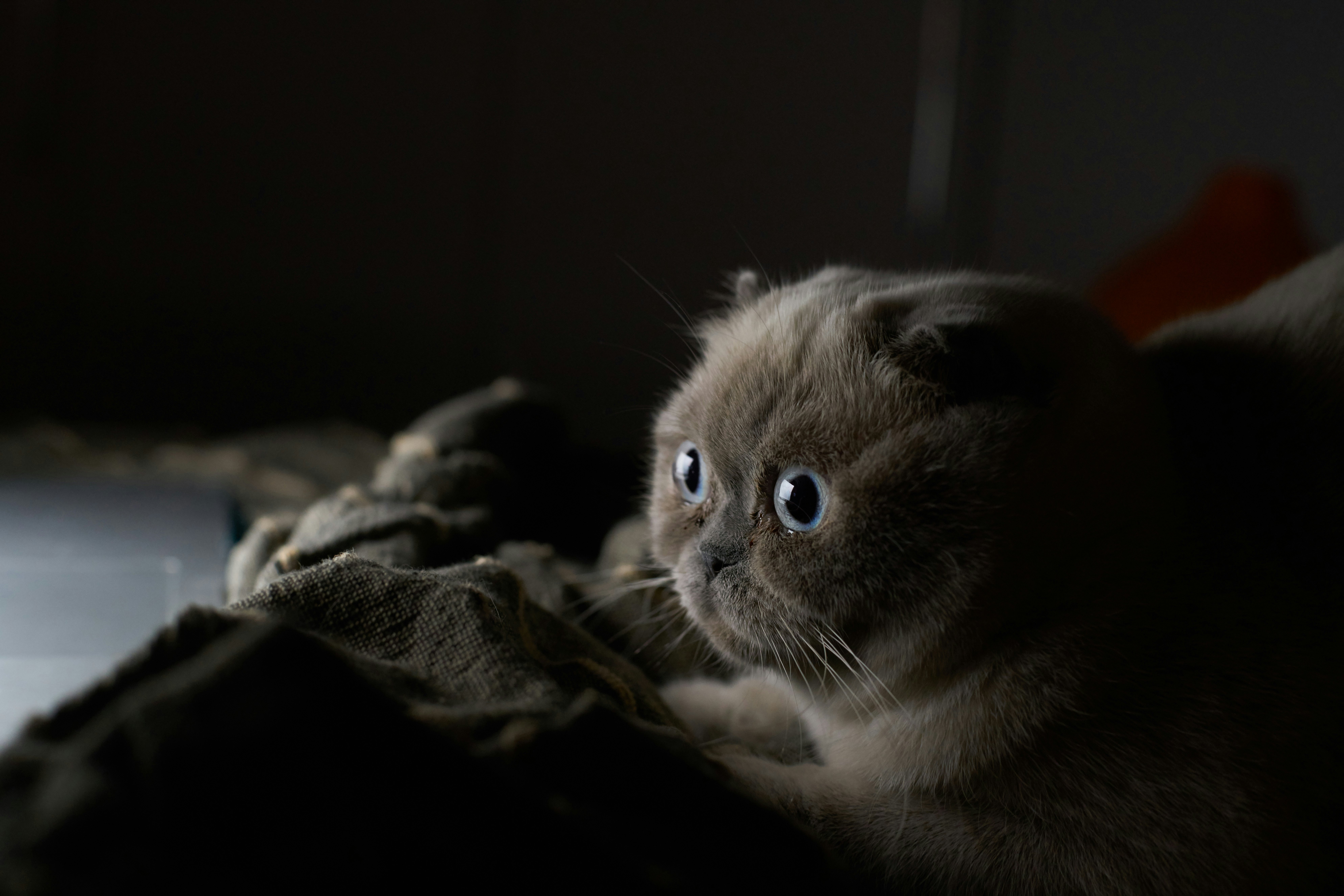
If you’ve ever woken up to see your cat’s glaring yellow eyes peering at you from the depths of darkness, then you’ve probably wondered about your feline’s seemingly nocturnal habits.
Contrary to popular belief, cats are not actually nocturnal in the traditional sense — but, unlike humans, their energy levels ebb and flow throughout an entire 24-hour day.
“Cats are actually crepuscular, meaning that they are most active at dusk and dawn,” Stelow says.
Pankratz and Delgado explain this crepuscular behavior evolved in domestic cats’ wild ancestors so they could better hunt prey.
“Cats tend to be less active at night and during the daytime, when their predators are most active,” DeVoss says. This evolutionary trait can lead to house cats sleeping during the daytime.
House cats typically mimic the activity patterns of their owners, “so they will perk up when you wake up and when you get home from work,” Delgado explains. Numerous studies back this up.
The weather and their feeding times can also influence their sleeping behavior.
“Many domesticated cats may mimic the household activity prompting them to sleep more during the night and be more active during the day,” Pankratz says.
But Pankratz adds that if your cat is very active at night, then it might sleep during the day.
What if your cat sleeps all day long?
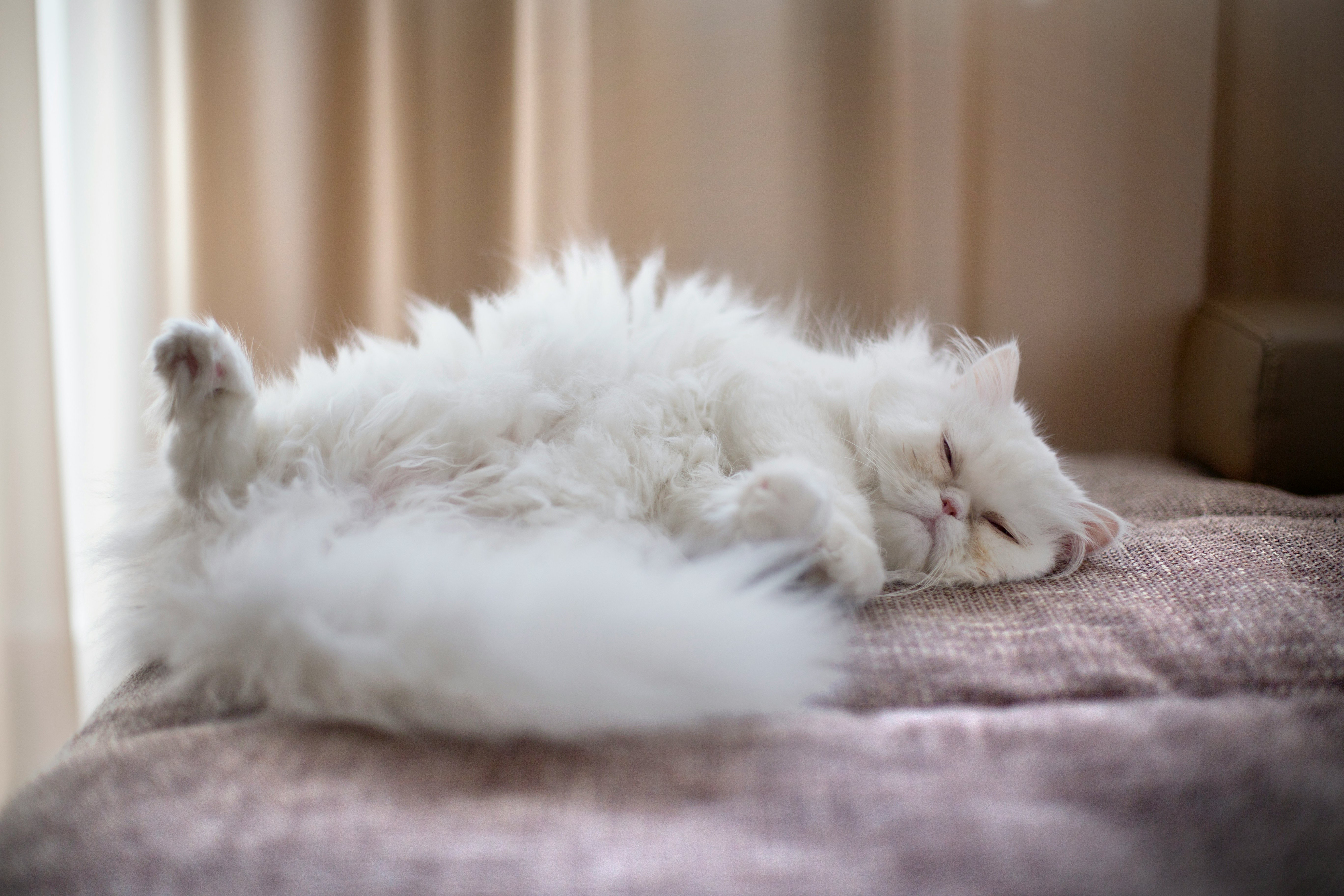
So, now it’s clear that if your cat seems to be sleeping for long stretches of the working day, you probably shouldn’t be worried. But what if your kitty seems to be sleeping away the entire day? Is that still par for the course?
“I would not necessarily say it's normal for all cats to sleep all day,” Delgado says.
Other experts agree. According to Stelow, “oversleeping can be a sign of a medical issue, especially if there is a sudden change in sleep patterns or if the cat cannot be easily engaged in a pleasurable activity,” like playtime, feeding, and petting.
DeVoss adds, “If your cat is sleeping more than 16 hours a day, they may be bored, or it might be an indication of a medical issue.”
According to Pankratz, if your cat is sleeping more than usual, this may be a sign something else is up health wise. “Sleeping more could be a sign of stress,” Pankratz says. When cats are afraid or stressed, they’ll often hide or become less active to feel safe.
Cats may even pretend to sleep when they’re put in a stressful environment. In these situations, the cat “appears to be at rest but emotionally remains tense and fakes sleep in a means to block out the stressful world,” Pankratz explains.
Signs that your cat is pretending to sleep include raised ears, tensed muscles and limbs, and a tail wrapped tightly underneath the body.
“If there is a suspicion for any underlying anxiety, it may be appropriate to consult with a board-certified veterinary behaviorist,” Pankratz says. You can find a list of approved veterinary behaviorists on the American College of Veterinary Behaviorists’ website.
Your cat could also be sick, or in distress.
“If a cat is feeling sick or painful, they may hide more or be less active — rest more — as a means to protect themselves,” Pankratz says.
Paying attention to sudden shifts in your cat’s behavior, including sleep patterns, could clue you in that something is up. If you’re not sure whether your cat’s sleeping issues are a sign of bigger medical problems, consult with your veterinarian.
How can I keep my cat from waking me up at night?
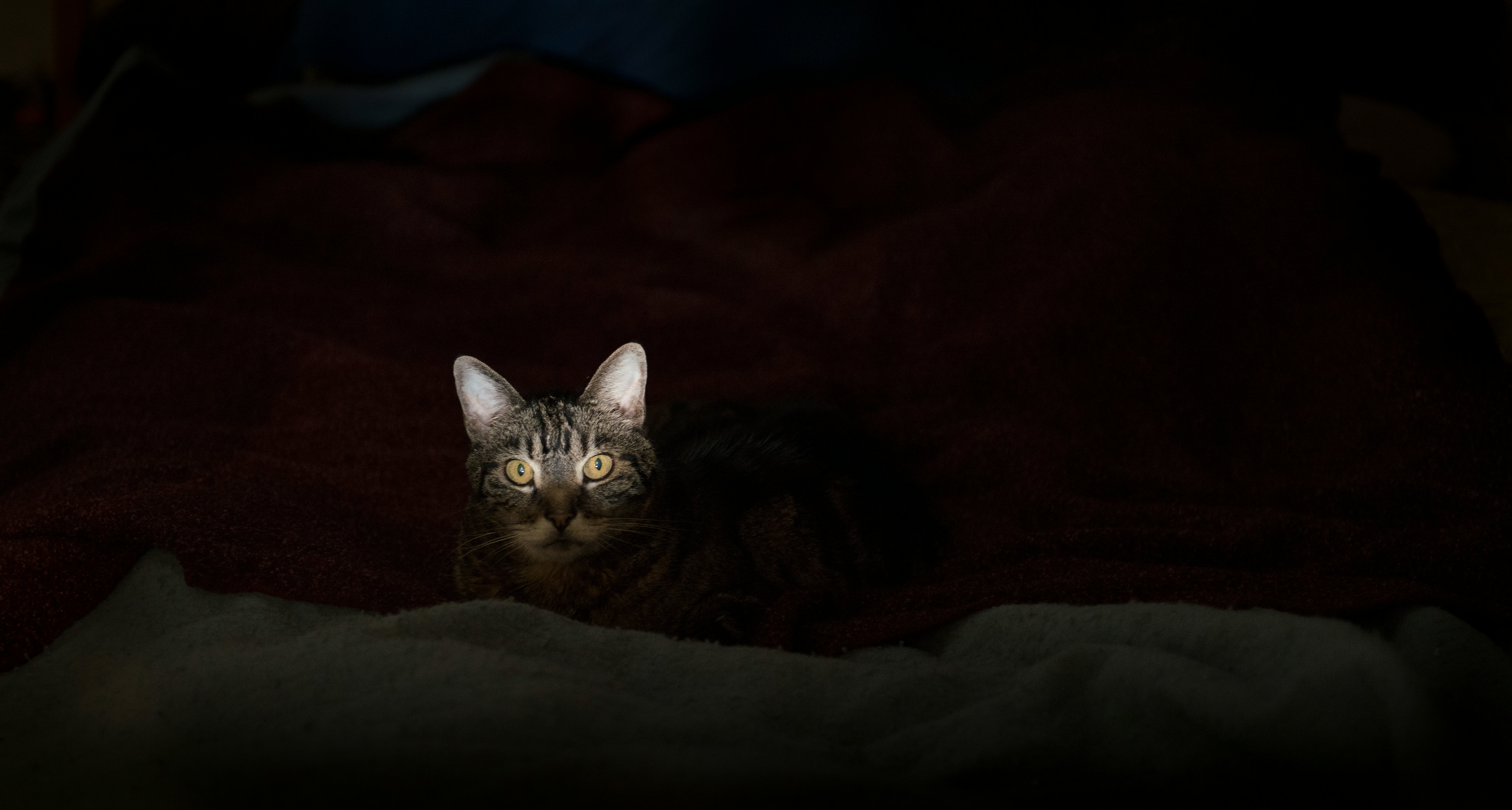
Both Pankratz and Delgado stress the need for proper feline exercise and stimulation — also known as “enrichment” — during the day to avoid the dreaded nighttime zoomies.
“If they sleep all day, yes, it is possible they will wake you up overnight,” Delgado says.
Stelow adds, “The most common reasons a cat intentionally wakes people up is to be fed or petted; unintentionally, cats may wake people when they play with each other or simply prowl the bedroom.
Cats may also wake you up in the night because of hunger. DeVoss and Stelow both suggest playing with and feeding your cat right before bedtime.
“Have a vigorous prey play session right before the last meal and that should trigger the eat/groom/sleep cycle and get kitty through the night,” DeVoss explains.
Pankratz offers these five tips to owners to keep your cats asleep at night:
- Meet your cat’s behavioral needs. One important need is providing opportunities for your cat to safely engage in its predatory behaviors through playtime. This can include veterinarian-approved cat toys or food puzzles.
- Match your cat's activity pattern. Bored cats may need more stimulated activities during the day so they’ll be tired at night. You can try 5 to 15 minute play sessions several times throughout the day or train your cat to learn tricks. Another good option is to alternate different cat toys each night so they don’t get bored.
- Consider closing your bedroom door. If you’re losing sleep every night, you may need to resort to this option. Your cat will probably not be pleased, but to prevent them from scratching at your door, keep them occupied with those enriching toys and puzzles in another room.
- Use an automatic feeder. This is a good option if your pet is waking you up for meals before your alarm rings. Alternatively, a food puzzle that provides small meals throughout the day could be an even better option, since it’s more in line with the way cats naturally eat. Some food timer bowls can also be set to go off during the night.
- Avoid the temptation to use punishment. Any negative punishment will instill fear in your pet and harm your relationship. Instead, follow the steps above to maintain a good relationship with your cat and get your shut-eye.
Remember, you are sharing your home with another animal. Treat them with respect and always ensure you are meeting their needs. You’ll both be better off for it.







